
Mamfe: The Gateway to Cameroon's Natural Wonders
Nestled in the lush rainforest of Southwest Cameroon, Mamfe is a hidden gem that offers a unique blend of natural beauty and cultural richness. This charming town is renowned for its scenic landscapes, vibrant markets, and warm hospitality. Whether you're an adventure seeker, a nature lover, or a cultural enthusiast, Mamfe has something to offer. One of the main attractions in Mamfe is the Manyu River, which winds its way through the town and offers opportunities for boating and fishing. The surrounding rainforest is home to a diverse array of wildlife, making it a great destination for eco-tourism. You can explore the trails that lead to picturesque waterfalls and discover the rich biodiversity of the region. Mamfe is also a cultural hub, with a rich history that is reflected in its traditional festivals and dances. The local markets are bustling with activity and offer a chance to experience the local way of life. You can sample delicious Cameroonian cuisine, buy handmade crafts, and interact with the friendly locals who are always eager to share their stories. For those interested in history, Mamfe has several historical sites that tell the story of the region's past. The town played a significant role during World War II and has several monuments and relics that commemorate this period. A visit to these sites provides a deeper understanding of Mamfe's historical significance.
Local tips in Mamfe
- Carry insect repellent and wear long sleeves to protect yourself from mosquitoes in the rainforest.
- Visit the local markets early in the morning for the freshest produce and the best bargains.
- Hire a local guide for trekking and exploring the rainforest to ensure safety and gain valuable insights.
- Respect local customs and traditions, especially during festivals and cultural events.
- Bring cash, as credit card facilities may not be available in many places.
Mamfe: The Gateway to Cameroon's Natural Wonders
Nestled in the lush rainforest of Southwest Cameroon, Mamfe is a hidden gem that offers a unique blend of natural beauty and cultural richness. This charming town is renowned for its scenic landscapes, vibrant markets, and warm hospitality. Whether you're an adventure seeker, a nature lover, or a cultural enthusiast, Mamfe has something to offer. One of the main attractions in Mamfe is the Manyu River, which winds its way through the town and offers opportunities for boating and fishing. The surrounding rainforest is home to a diverse array of wildlife, making it a great destination for eco-tourism. You can explore the trails that lead to picturesque waterfalls and discover the rich biodiversity of the region. Mamfe is also a cultural hub, with a rich history that is reflected in its traditional festivals and dances. The local markets are bustling with activity and offer a chance to experience the local way of life. You can sample delicious Cameroonian cuisine, buy handmade crafts, and interact with the friendly locals who are always eager to share their stories. For those interested in history, Mamfe has several historical sites that tell the story of the region's past. The town played a significant role during World War II and has several monuments and relics that commemorate this period. A visit to these sites provides a deeper understanding of Mamfe's historical significance.
When is the best time to go to Mamfe?
Iconic landmarks you can’t miss
Cameroon Reunification Monument
A landmark in Yaoundé symbolizing Cameroon's reunification, cultural richness, and journey towards national unity and independence.
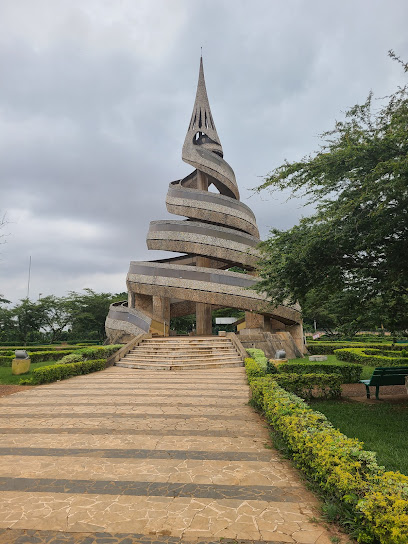
Bois Sainte Anastasie
Escape the city bustle in this green oasis with art, nature, and local flavors in the heart of Yaoundé.
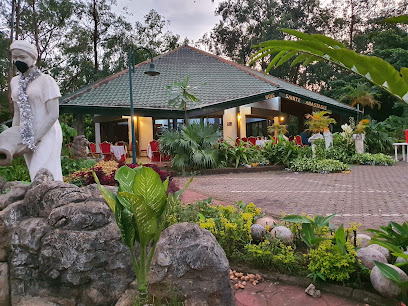
Ayos Centre
Discover Cameroonian art and culture at Ayos Centre in Foumban: workshops, exhibitions, and unique artistic experiences await!
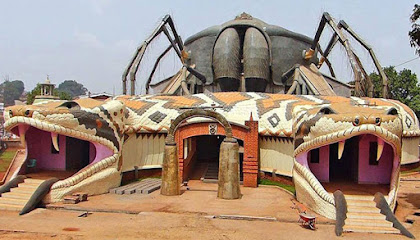
Ekom Nkam Waterfalls
Discover the breathtaking Ekom Nkam Waterfalls in Cameroon, a natural wonder offering stunning cascades and lush rainforest scenery.
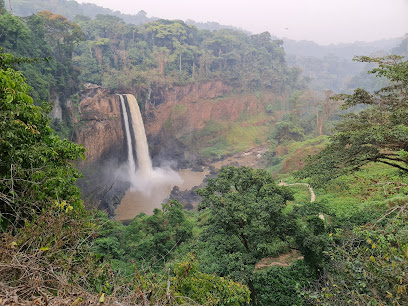
Statue of Charles Atangana
Discover the Statue of Charles Atangana in Yaoundé, a historical landmark celebrating Cameroon's heritage and culture.
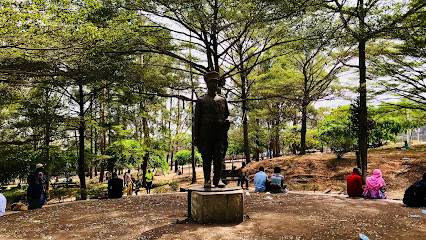
Parc de la Méfou (Ape Action Africa)
Visit Parc de la Méfou, a Cameroon wildlife sanctuary, and witness rescued primates in a natural forest setting while supporting conservation efforts.
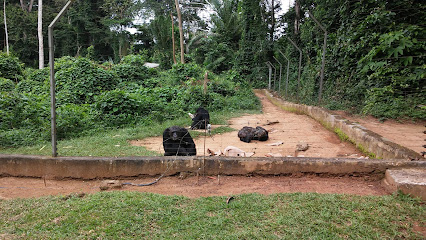
I love my country Cameroon round about
Experience Cameroonian pride at Yaoundé's 'I Love My Country' Roundabout, a vibrant landmark showcasing national culture and artistry in the heart of the city.
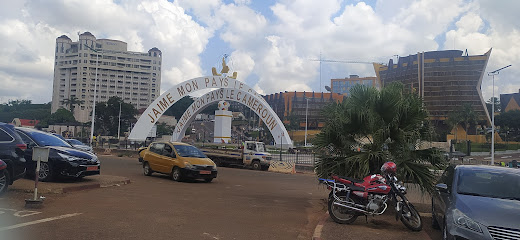
Blackitude Museum
Discover Cameroon's rich cultural heritage at the Blackitude Museum in Yaoundé, showcasing art, music, and history of the Black community.
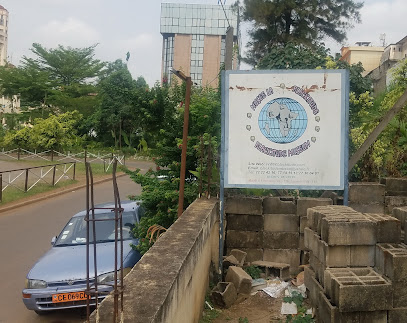
Mamfe Main Park
Escape to tranquility in Mamfe Main Park, a green haven offering relaxation and a taste of local Cameroonian culture in the heart of Manyu.

Independence Square
Discover Independence Square in Yaoundé, Cameroon: a historical landmark symbolizing the nation's journey to freedom and unity.
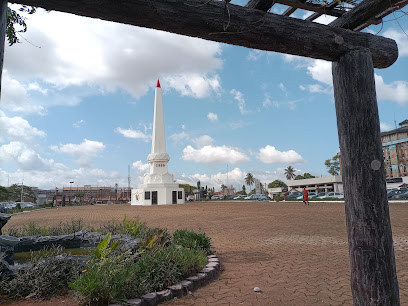
La Nouvelle Liberté
Discover La Nouvelle Liberté in Douala, Cameroon: a towering sculpture made of recycled materials, symbolizing the city's resilience and spirit of freedom.
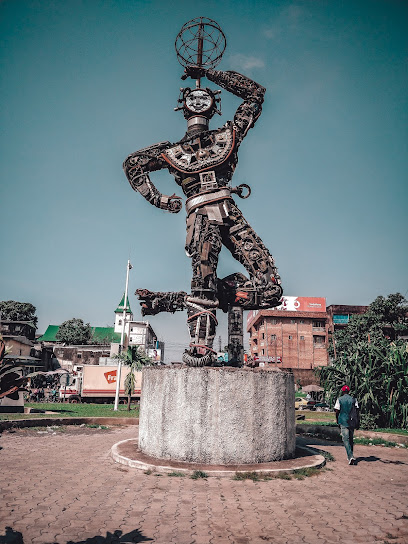
Egbekaw Village
Discover Egbekaw Village: Experience authentic Cameroonian culture, scenic beauty, and warm hospitality in this tranquil cottage retreat near Mamfe.
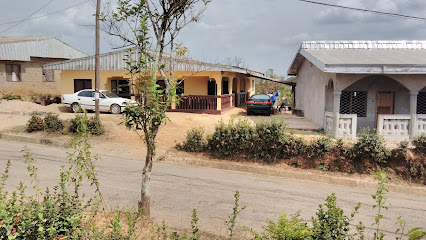
Monument j'aime mon pays
A modern monument in Yaoundé symbolizing Cameroonian pride, unity, and cultural heritage. A must-see landmark!
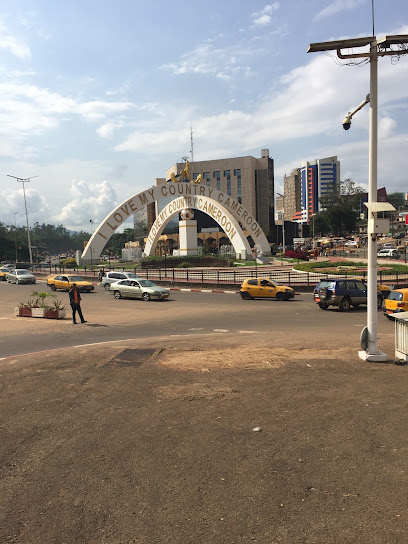
Mamfe Central Mosque
Discover the spiritual heart of Mamfe at the Central Mosque, a cultural landmark showcasing Islamic heritage and community spirit in Cameroon.

German Bridge
Explore the historic German Bridge in Mamfe, Cameroon, offering scenic views and a glimpse into the region's colonial past and architectural beauty.
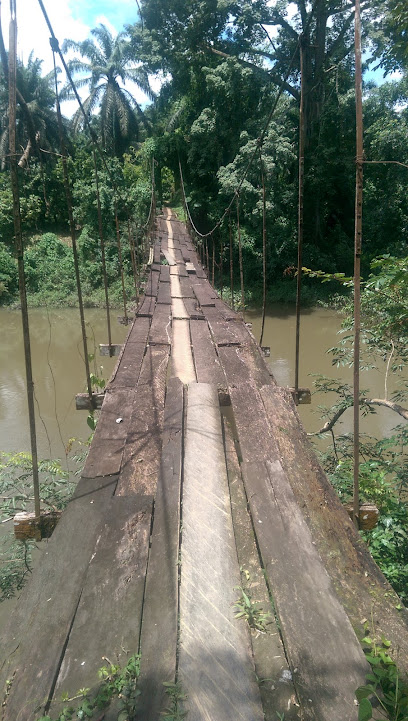
Unmissable attractions to see
Achimota Forest
Explore Achimota Forest, Accra's lush green oasis filled with diverse wildlife and serene walking trails for the perfect escape from city life.
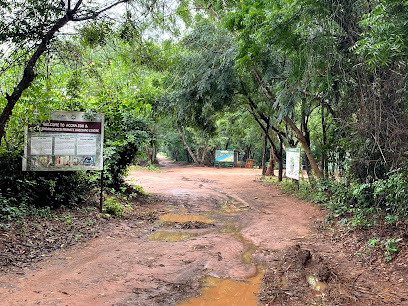
Maritime Museum Of Douala
Discover the Maritime Museum of Douala, a captivating journey through Cameroon’s rich maritime history and cultural heritage.
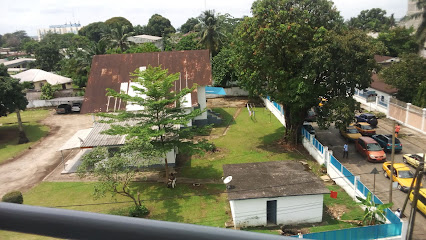
Waza National Park
Discover the rich wildlife and stunning landscapes of Waza National Park, a must-visit national park in Cameroon for nature lovers and adventure seekers.
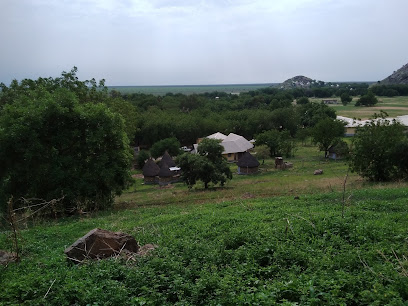
Umbrella Rock
Explore the natural beauty and cultural significance of Umbrella Rock, a unique tourist attraction in Asiafo Amanfro, Ghana.
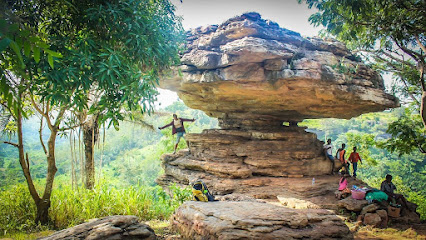
Parc de la Méfou (Ape Action Africa)
Experience the beauty of nature and wildlife at Parc de la Méfou, a premier refuge for endangered primates in Cameroon.
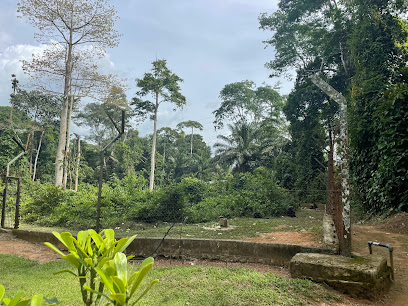
Musée Ethnographique et d'Histoire des Peuples de la Forêt d'Afrique Centrale
Explore the rich cultural heritage of Central Africa at the Musée Ethnographique et d'Histoire des Peuples de la Forêt d'Afrique Centrale in Yaoundé.
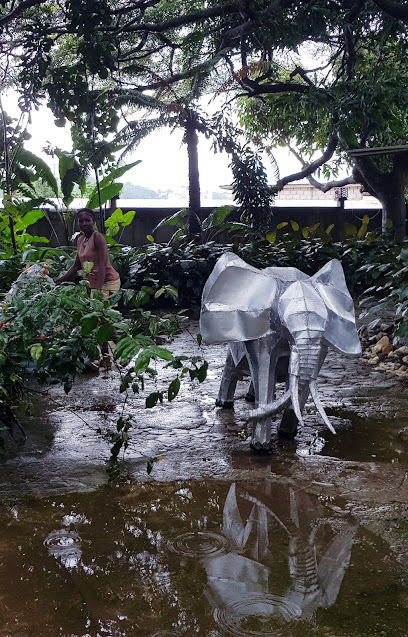
Blackitude Museum
Explore the Blackitude Museum in Yaoundé to uncover the vibrant art, music, and cultural heritage of Cameroon in an immersive setting.
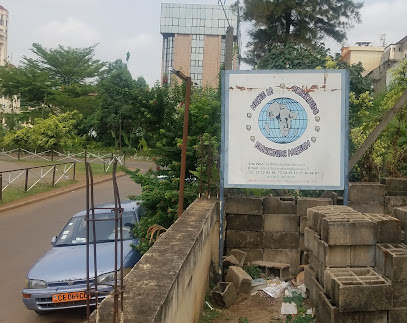
Agbokim Waterfalls, Nigeria
Discover the beauty of Agbokim Waterfalls, a stunning natural attraction in Cross River, Nigeria, where lush landscapes and cascading waters await.
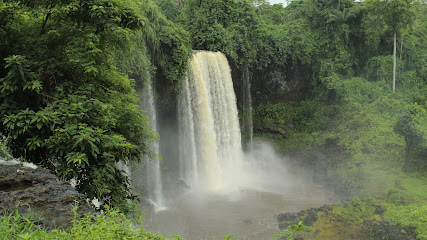
Mamfe Main Park
Discover tranquility and local culture at Mamfe Main Park, a green haven in the vibrant heart of Cameroon.
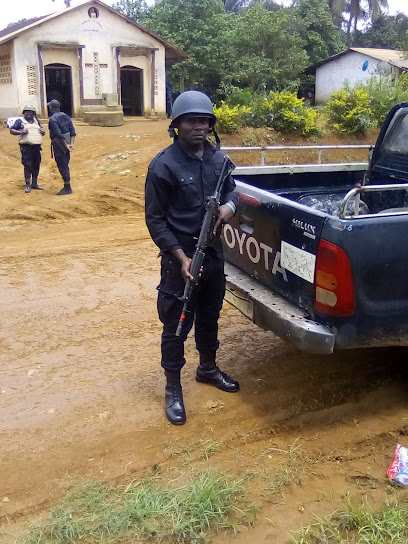
Mankon Museum
Explore the cultural tapestry of the Mankon community at Mankon Museum, a must-visit destination for those seeking to understand Cameroon's heritage.
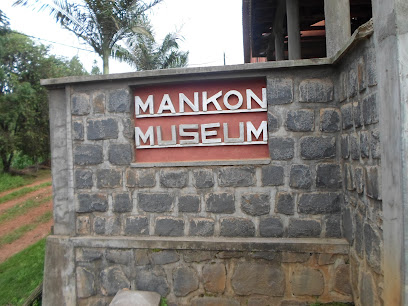
Muanenguba twin lakes Bangem
Explore the breathtaking Muanenguba Twin Lakes in Bangem, Cameroon – a serene escape into nature's captivating beauty.
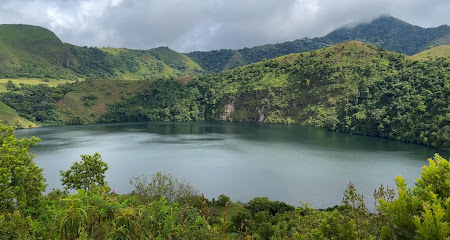
Mbouroukou
Explore Mbouroukou, Cameroon – a hidden gem offering rich culture, stunning landscapes, and unforgettable local experiences for every traveler.
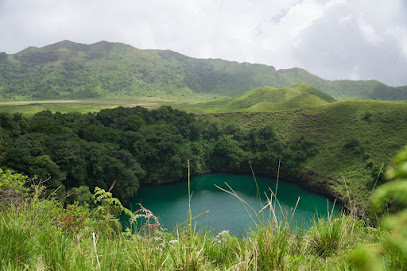
Muanenguba twin lakes
Discover the stunning beauty of Muanenguba Twin Lakes in Cameroon, a perfect escape for nature lovers and adventure seekers alike.
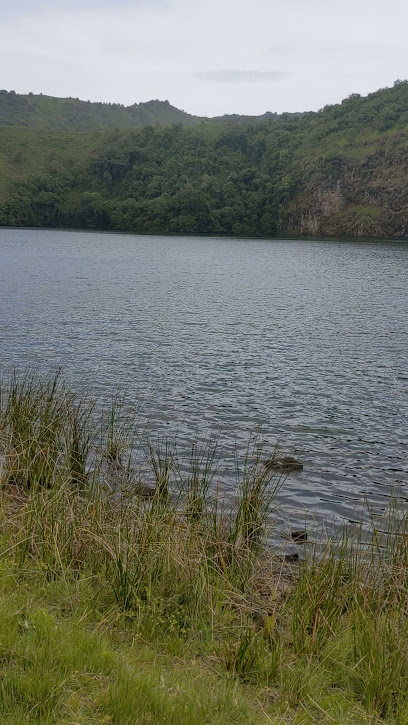
Tetteh Quarshie Cocoa Farm
Explore Tetteh Quarshie Cocoa Farm, the birthplace of Ghana's cocoa industry, and discover its rich history and cultural significance.

Tali upper Bayang
Explore Tali Upper Bayang - a serene tourist attraction in Cameroon, perfect for hiking, nature photography, and relaxing amidst breathtaking landscapes.

Essential places to dine
Precious Foods
Experience authentic Cameroonian cuisine at Precious Foods in Mamfe – where every dish is crafted with passion and tradition.

Blue Sky Plus
Discover Blue Sky Plus in Mamfe: A lively bar with an eclectic drink menu and vibrant atmosphere perfect for unwinding after exploring.
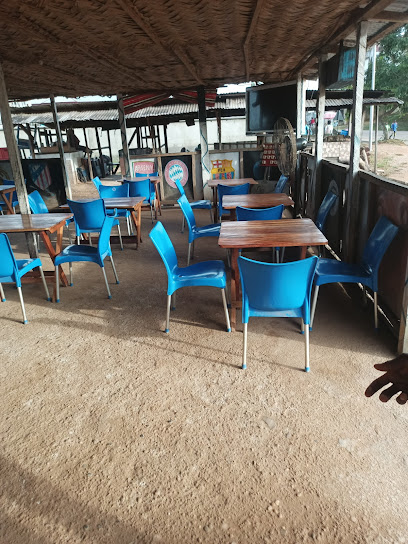
VIP Bar mile 1 Mamfe
Discover the vibrant dining experience at VIP Bar Mile 1 in Mamfe, where delicious grilled cuisine meets a lively atmosphere.
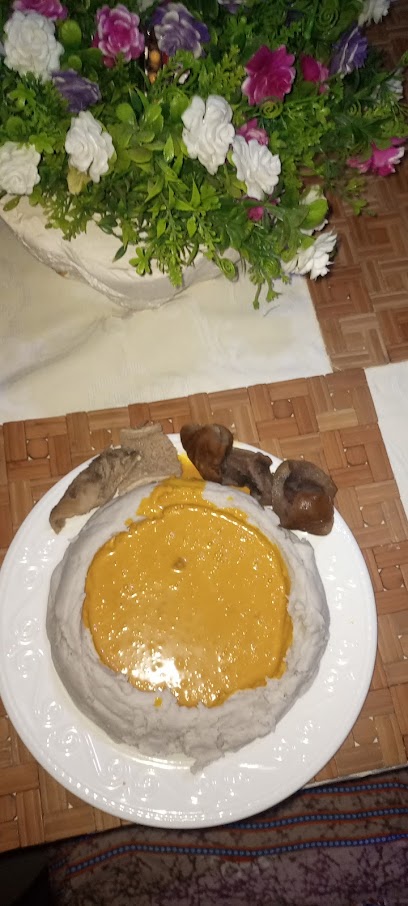
Resto yabassi
Discover authentic local cuisine at Resto Yabassi in Mamfe - where vibrant flavors meet warm hospitality.

Point and kill
Discover authentic Cameroonian seafood delicacies at Point and Kill in Mamfe – where tradition meets taste.
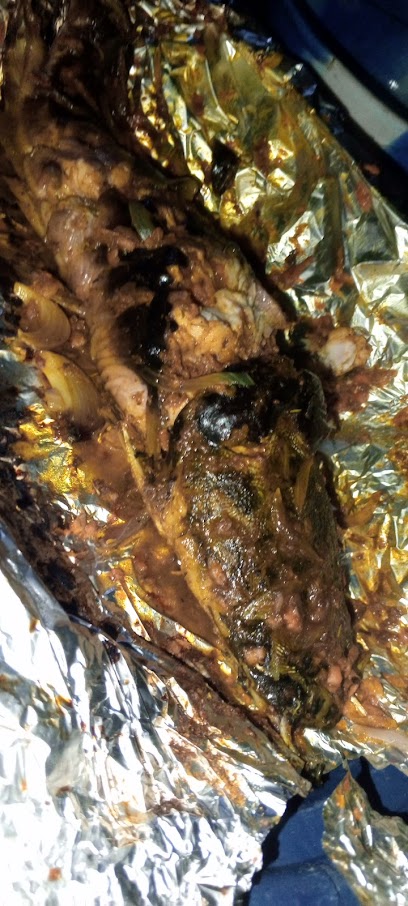
MIND YOUR BUSINESS
Experience the vibrant nightlife at MIND YOUR BUSINESS, a cozy bar in Mamfe offering delightful drinks and local culture.

Markets, malls and hidden boutiques
Douala Grand Mall
Experience the essence of Douala at the Grand Mall - a shopping and entertainment paradise with local flair.
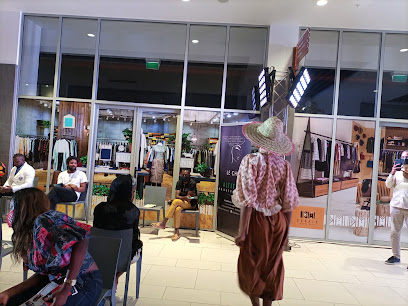
China Mall Ndokoti
Experience the vibrant local shopping culture at China Mall Ndokoti, where a diverse range of products awaits in the heart of Douala.
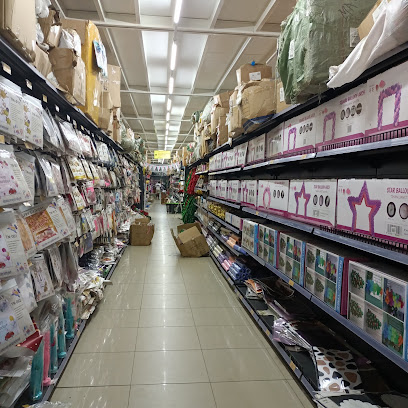
ORCA Yaoundé
Discover the lively shopping experience at ORCA Yaoundé, where local culture meets modern retail in the heart of Cameroon.
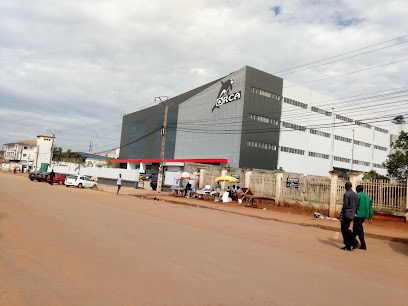
Mamfe Main Park
Explore the natural beauty of Mamfe Main Park, a serene escape in the heart of Mamfe, perfect for relaxation and nature lovers.

Pierro Network
Discover the latest gadgets and electronics at Pierro Network in Mamfé, where quality meets exceptional service.
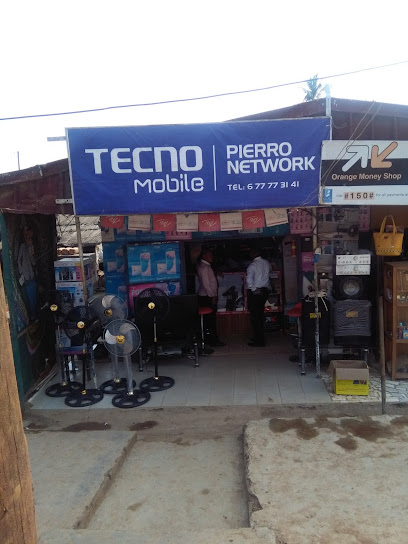
Egbekaw Village
Discover the tranquility of Egbekaw Village, a charming cottage retreat in Mamfe surrounded by lush nature and vibrant local culture.
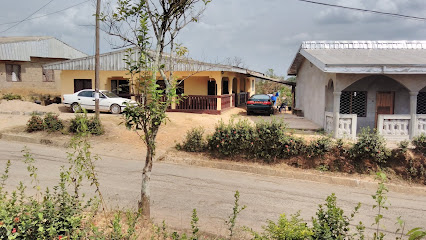
Mbaymboum امبايبوم
Discover the charm of Mbaymboum in Panzama, a home goods store offering unique local crafts and a warm atmosphere for every traveler.
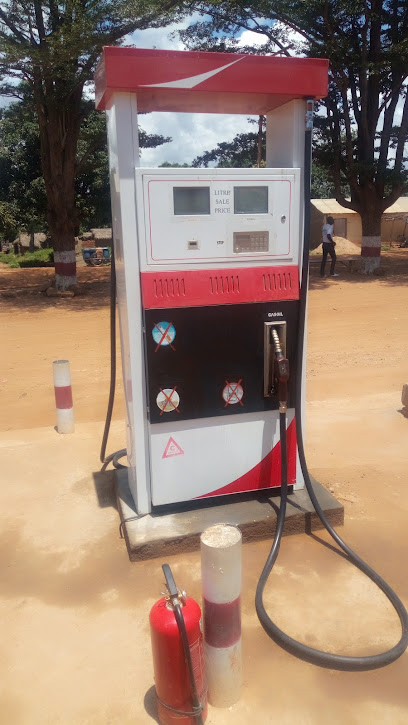
TotalEnergies Mamfe
Explore the heart of Cameroon with TotalEnergies Mamfe, your reliable gas station and auto repair shop for all your travel needs.
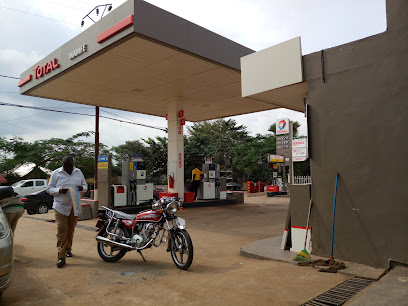
UBa-commerce
Explore UBa-commerce in Bamenda for a unique blend of local craftsmanship and modern shopping experiences.

Mamfe Market
Experience the vibrant Mamfe Market, a bustling hub of culture, crafts, and local flavors in the heart of Cameroon.

Mamfe Cathedral
Explore Mamfe Cathedral, a stunning architectural masterpiece that embodies the spirit of faith and community in Mamfe, Cameroon.
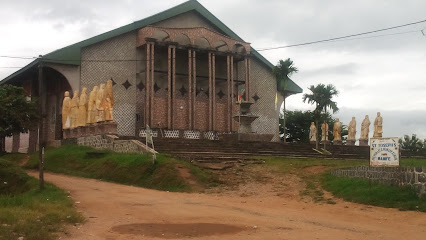
Marché Igname
Explore the vibrant Marché Igname for an authentic taste of Cameroon, where local produce, spices, and artisanal goods come together in a lively marketplace.
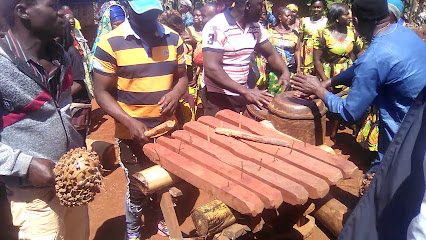
Chez Ley Mane, NDAH PEIN
Explore the vibrant art scene at Chez Ley Mane, where local creativity comes to life through stunning paintings in the heart of Foumbot.
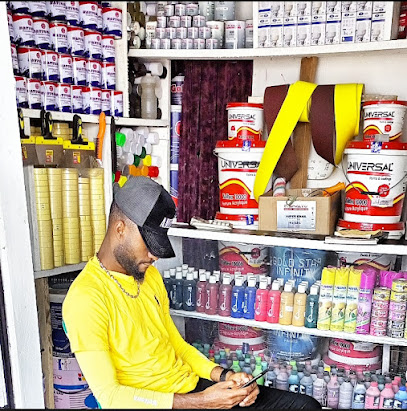
Marché artisanal
Explore Douala's Marché Artisanal - a vibrant market showcasing local craftsmanship, culture, and delicious Cameroonian flavors.
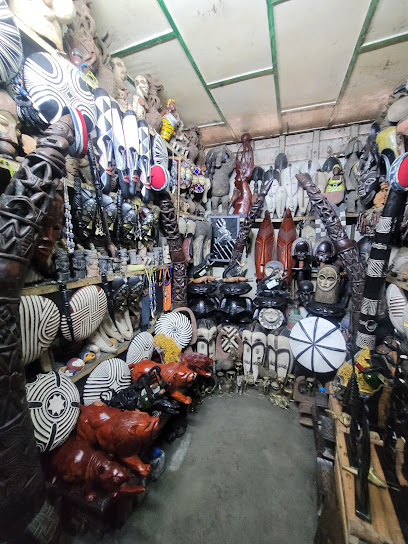
MOLLA SHOPPING
Discover unique fashion pieces at Molla Shopping in Douala, where local trends meet contemporary style in a vibrant shopping atmosphere.
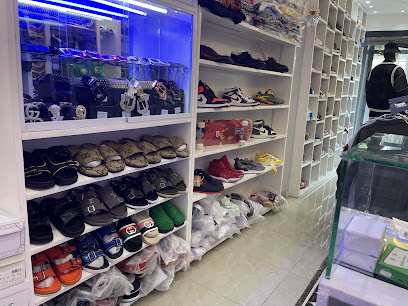
Essential bars & hidden hideouts
Bubble Bar
Discover the vibrant nightlife at Bubble Bar, Douala's premier spot for cocktails, music, and unforgettable memories.
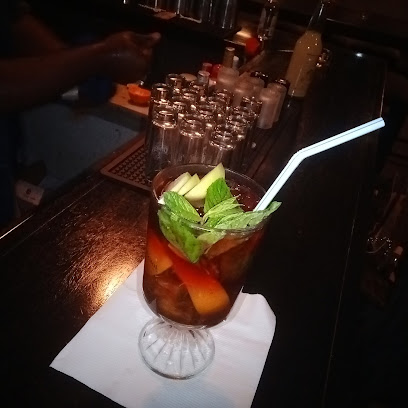
Bambou Lounge
Experience the lively atmosphere and diverse flavors of Bambou Lounge, a premier dining and nightlife destination in the heart of Yaoundé.
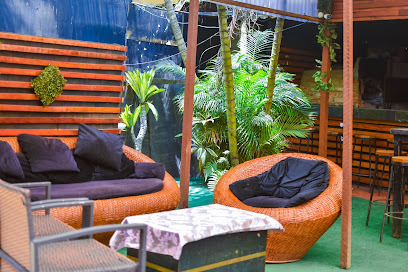
Black and White Limbe
Discover the vibrant dining and nightlife experience at Black and White Limbe, where exceptional food meets electrifying entertainment in the heart of Limbe.
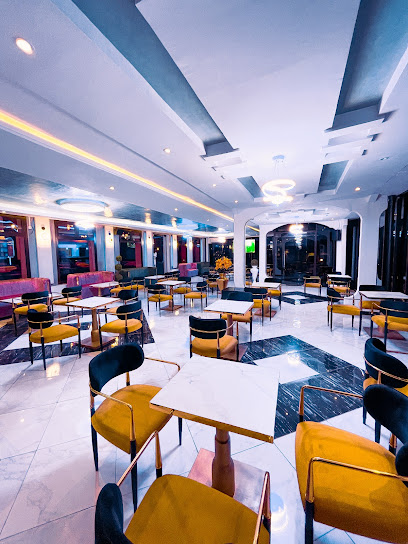
Panamera Lounge
Discover a vibrant atmosphere at Panamera Lounge in Douala, where relaxation meets local culture through refreshing drinks and friendly service.
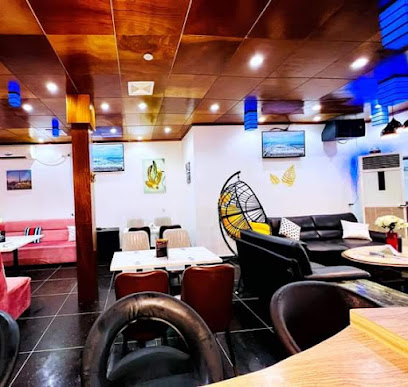
Café Métisse
Explore Café Métisse in Douala for a cozy lounge experience, local flavors, and a perfect escape from the city's hustle and bustle.
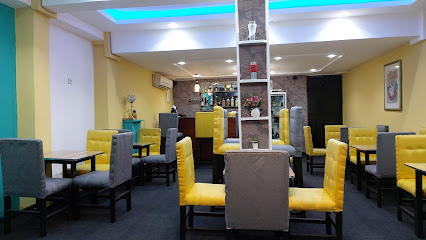
Mamfe Market
Experience the lively atmosphere and rich culture of Mamfe Market, where local flavors and unique goods await every visitor.

Sweet Breeze Bonanjo
Experience the vibrant nightlife of Besongabang at Sweet Breeze Bonanjo, where local culture and refreshing drinks come together.

Down Beach Bar
Discover the lively spirit of Mutengene at Down Beach Bar, where refreshing drinks and local vibes come together for an unforgettable experience.
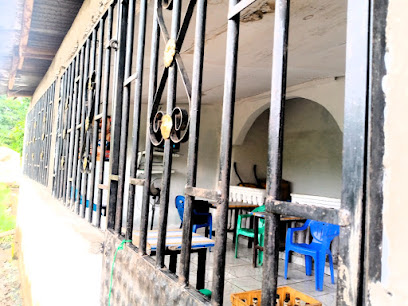
LE MATIGNON
Discover the charm of Edéa at Le Matignon, a cozy lounge offering delightful drinks and a vibrant atmosphere for a memorable experience.
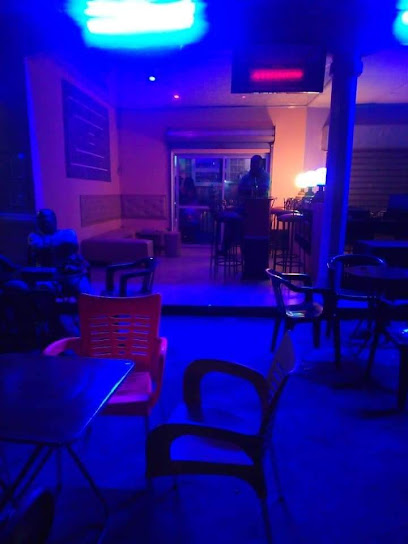
Blue Sky Plus
Discover the lively spirit of Mamfe at Blue Sky Plus, a vibrant bar offering a mix of local flavors and refreshing drinks in an inviting atmosphere.
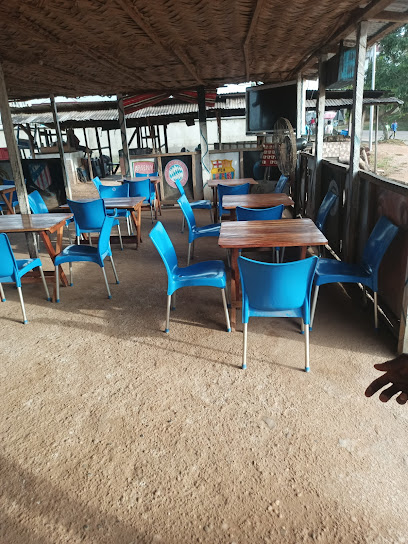
Le mannek1 snak bar
Experience the cozy ambiance and exquisite wine selection at Le Mannek1 Snack Bar, a must-visit spot in Soa for wine lovers.
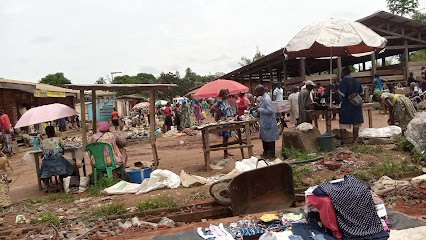
VIP Bar mile 1 Mamfe
Experience the vibrant flavors of Cameroon at VIP Bar, a top grill and bar destination in Mamfe with lively ambiance and mouthwatering dishes.
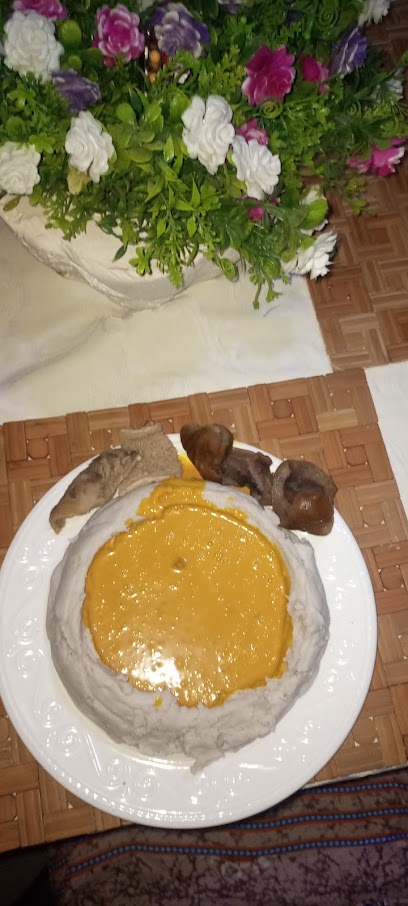
Resto yabassi
Discover the flavors of Cameroon at Resto Yabassi, a must-visit restaurant in Mamfe offering authentic local cuisine and a welcoming atmosphere.

MAMAN BAR
Discover the lively ambiance and local flavors at MAMAN BAR, the perfect spot for tourists to unwind and socialize in the heart of the city.
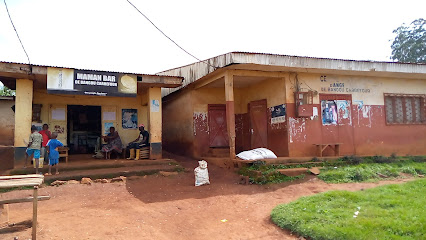
Malende Moyoka
Discover the heart of Kofa's nightlife at Malende Moyoka, where music, dance, and vibrant social scenes come together for an unforgettable experience.

Local Phrases
-
- HelloBoo
[Boo] - GoodbyeKa kwe
[Ka kwe] - YesEe
[Ee] - NoMbee
[Mbee] - Please/You're welcomeKa so
[Ka so] - Thank youKa mi
[Ka mi] - Excuse me/SorryKa ngwe
[Ka ngwe] - How are you?Nkwi?
[Nkwi?] - Fine. And you?Be nkwi. Na?
[Be nkwi. Na?] - Do you speak English?Ee nyi mbanglai?
[Ee nyi mbanglai?] - I don't understandA nde nkwem
[A nde nkwem]
- HelloBoo
-
- I'd like to see the menu, pleaseA nji nyuma menu, ka so
[A nji nyuma menu, ka so] - I don't eat meatA nde nyuma nyama
[A nde nyuma nyama] - Cheers!Ngam!
[Ngam!] - I would like to pay, pleaseA nji kwe, ka so
[A nji kwe, ka so]
- I'd like to see the menu, pleaseA nji nyuma menu, ka so
-
- Help!Bua!
[Bua!] - Go away!Kwa!
[Kwa!] - Call the Police!Yi be ngyu tondi!
[Yi be ngyu tondi!] - Call a doctor!Yi be ngyu dokita!
[Yi be ngyu dokita!] - I'm lostA mba si
[A mba si] - I'm illA mba si
[A mba si]
- Help!Bua!
-
- I'd like to buy...A nji nyuma...
[A nji nyuma...] - I'm just lookingA nde nekwu
[A nde nekwu] - How much is it?I ni?
[I ni?] - That's too expensiveI nda kwe
[I nda kwe] - Can you lower the price?A yi nkwu kwe?
[A yi nkwu kwe?]
- I'd like to buy...A nji nyuma...
-
- What time is it?I fongi ni?
[I fongi ni?] - It's one o'clockNi i ma
[Ni i ma] - Half past (10)Mba (10)
[Mba (10)] - MorningMba
[Mba] - AfternoonMbosi
[Mbosi] - EveningFoni
[Foni] - YesterdayI nji
[I nji] - TodayI ni
[I ni] - TomorrowI fongi
[I fongi] - 1Nyi
[Nyi] - 2Mbou
[Mbou] - 3Mbi
[Mbi] - 4Nya
[Nya] - 5Nne
[Nne] - 6Ndia
[Ndia] - 7Ntum
[Ntum] - 8Ntum na nyi
[Ntum na nyi] - 9Ntum na mbou
[Ntum na mbou] - 10Ntum na mbi
[Ntum na mbi]
- What time is it?I fongi ni?
-
- Where's a/the...?I nengi...
[I nengi...] - What's the address?I fongi i nyambe?
[I fongi i nyambe?] - Can you show me (on the map)?A yi nkwu (i mape)?
[A yi nkwu (i mape)?] - When's the next (bus)?I fongi bus a nengi?
[I fongi bus a nengi?] - A ticket (to ....)Nji ticket (to ....)
[Nji ticket (to ....)]
- Where's a/the...?I nengi...
History of Mamfe
-
Mamfe, nestled in the Manyu department of the Southwest Region of Cameroon, has a rich history rooted in its early settlers, primarily the Bayang people. The Bayang, along with other ethnic groups such as the Ejagham, have called this region home for centuries, living in harmony with the lush, tropical environment. These indigenous communities developed intricate social structures, oral traditions, and agricultural practices that are still evident today.
-
In the late 19th century, Mamfe came under German colonial rule, significantly impacting the town's development. The Germans established administrative and military posts, leveraging Mamfe's strategic location near the Cross River. This period saw the introduction of Western education and Christianity, which began to alter the social and cultural landscape of the region.
-
Following Germany's defeat in World War I, Mamfe was administered under British mandate as part of the British Cameroons. This transition brought about further changes, with the British focusing on infrastructure development, including roads and bridges to improve connectivity. Mamfe's proximity to the border with Nigeria also made it a focal point for cross-border trade and cultural exchange.
-
After Cameroon gained independence in 1960, Mamfe continued to thrive as a commercial hub. The town became renowned for its vibrant markets, where traders from various parts of Cameroon and Nigeria would converge. The agricultural sector, particularly cocoa and palm oil production, played a significant role in the local economy, fostering growth and prosperity.
-
Mamfe is a cultural melting pot, with a rich tapestry of traditions and customs. Annual festivals such as the Lebang Cultural Festival celebrate the heritage of the Bayang people, featuring traditional dances, music, and rituals. These festivals not only preserve cultural identities but also promote unity and tourism in the region.
-
Today, Mamfe is a thriving town that blends its historical roots with modernity. The iconic Mamfe Bridge, spanning the Cross River, is a testament to the town's enduring significance as a gateway between Cameroon and Nigeria. Tourists are drawn to Mamfe’s scenic beauty, historical sites, and the warm hospitality of its people. Efforts to develop eco-tourism and preserve natural reserves also highlight the town's commitment to sustainable development.
Mamfe Essentials
-
Mamfe is located in the Southwest Region of Cameroon. The nearest major airport is Douala International Airport, about 380 kilometers away. From Douala, you can take a bus or hire a private car to Mamfe. The journey by road typically takes around 8 to 10 hours, depending on road conditions. Alternatively, you can fly to Bafut Airport in Bamenda and take a bus or taxi from Bamenda to Mamfe, which is approximately a 6-hour drive.
-
Mamfe is a relatively small town, and many of its attractions are within walking distance. For longer trips, local taxis and motorcycle taxis (boda-bodas) are readily available and inexpensive. Public buses and minibuses (coasters) operate within the town and connect to nearby villages. Renting a car can be a convenient option if you plan to explore the surrounding areas at your own pace.
-
The official currency in Cameroon is the Central African CFA Franc (XAF). Credit cards are accepted in some hotels and restaurants, but it is advisable to carry cash, especially in smaller establishments and rural areas. ATMs are available in Mamfe, but it is wise to withdraw sufficient cash in major cities like Douala or Yaoundé before traveling to ensure you have enough funds.
-
Mamfe is generally a safe destination for tourists, but standard precautions should be taken. Avoid walking alone at night in unfamiliar areas and keep an eye on your belongings in crowded places. Some neighborhoods may have higher crime rates, so it is best to ask locals or your accommodation for advice on which areas to avoid. Always stay vigilant and aware of your surroundings.
-
In case of emergency, dial 117 for police assistance and 119 for medical emergencies. The local police station and medical facilities are available in Mamfe. It is recommended to have travel insurance that covers medical emergencies. For minor health issues, there are pharmacies in the town where you can purchase over-the-counter medications.
-
Fashion: Do dress modestly, especially when visiting religious sites. Avoid wearing revealing clothing. Religion: Do respect local customs and traditions. Always be mindful of religious practices and ceremonies. Public Transport: Do be respectful to drivers and fellow passengers. Don't eat or drink on public transport. Greetings: Do greet people with a handshake. A friendly smile and a nod are also appreciated. Eating & Drinking: Do try local delicacies and accept food offerings graciously. Don’t refuse hospitality, as it is considered impolite.
-
To experience Mamfe like a local, visit the local markets where you can buy fresh produce and traditional Cameroonian goods. Engage with locals, as they are often friendly and willing to share stories about the town's history and culture. Don't miss visiting the Mamfe Bridge, which offers scenic views and is a significant historical landmark. For a unique experience, take a boat ride on the Manyu River to explore the natural beauty of the region.
Trending Landmark in Mamfe
-
Cameroon Reunification Monument
-
Bois Sainte Anastasie
-
Ayos Centre
-
Ekom Nkam Waterfalls
-
Statue of Charles Atangana
-
Parc de la Méfou (Ape Action Africa)
-
I love my country Cameroon round about
-
Blackitude Museum
-
Mamfe Main Park
-
Independence Square
-
La Nouvelle Liberté
-
Egbekaw Village
-
Monument j'aime mon pays
-
Mamfe Central Mosque
-
German Bridge
Nearby Cities to Mamfe
-
Things To Do in Dschang
-
Things To Do in Bamenda
-
Things To Do in Mbouda
-
Things To Do in Nkongsamba
-
Things To Do in Bafoussam
-
Things To Do in Calabar
-
Things To Do in Uyo
-
Things To Do in Foumban
-
Things To Do in Buea
-
Things To Do in Tiko
-
Things To Do in Limbe
-
Things To Do in Douala
-
Things To Do in Enugu
-
Things To Do in Malabo
-
Things To Do in Edea





